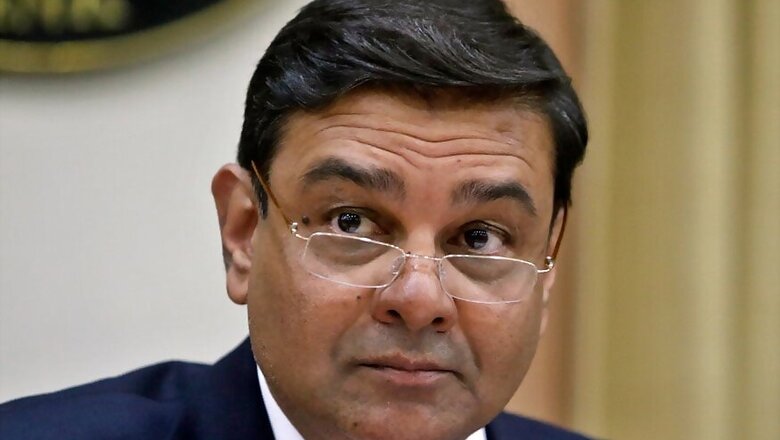
views
New Delhi: Reserve Bank of India Governor Urjit Patel has welcomed the government’s bank recapitalisation plan, saying that India has for the first time in a decade a “real chance” for a comprehensive strategy, rather than a piece-meal approach, to address the challenges in the banking sector.
In a statement posted on the RBI website, Patel said that a well-capitalised banking system creates a virtuous cycle of investment and job creation and is a pre-requisite for stable economic growth. “The Government of India’s decisive package to restore the health of the Indian banking system is in the view of the Reserve Bank of India (RBI), a monumental step forward in safeguarding the country’s economic future,” Patel said in the statement.
Finance Minister Arun Jaitley on Tuesday announced a record Rs 2.11 lakh crore recapitalisation plan for public sector banks over the next two years. Of this amount, nearly 65%, or Rs 1.35 lakh crore, will be raised via ‘Recapitalisation Bonds’, debt instruments which will be sold in the open market. The rest will be via government budgetary support and stake sales.
Bankex - the subset of publicly traded banking stocks on the Bombay Stock Exchange - was up 4.51% to 28,274. However, the Benchmark 10-year government bond decreased and yields hardened. This indicates that markets are split on the recap plan. While an infusion of cash is good for PSU banks (and their stock valuations), bond markets are concerned about the effect on the government’s finances.
The RBI governor sought to assuage such fears by saying that the plan has “several desirable features”.
Relying on market securities for a bulk of the cash infusion meant that the fiscal implications would be staggered over a period of time, as the repayment schedule would be stretched out. In support of this, the governor said that the plan would be “liquidity neutral” for the government, except for the interest expense that will contribute to the annual fiscal deficit numbers.
Secondly, the plan would introduce “market discipline” to a public recapitalisation plan by involving private market participants in a government stake sale. Banks that have better addressed their balance sheet issues would be given priority in cash infusions. Patel said that this was an improvement over previous recapitalisation programmes.
It is worth remembering that it was a similar borrowing programme in the late ‘80s that led to the deterioration of government finances which resulted in the Balance of Payments crisis in 1991, which heralded the onset of liberalization and reforms.
Moreover, in the aftermath of the 2008 global financial crisis, the government embarked on a stimulus programme which also contributed to worsening public finances. The current account and fiscal deficits deteriorated to a point where India was clubbed in the global “fragile five” list and was in danger of a rating downgrade.


















Comments
0 comment